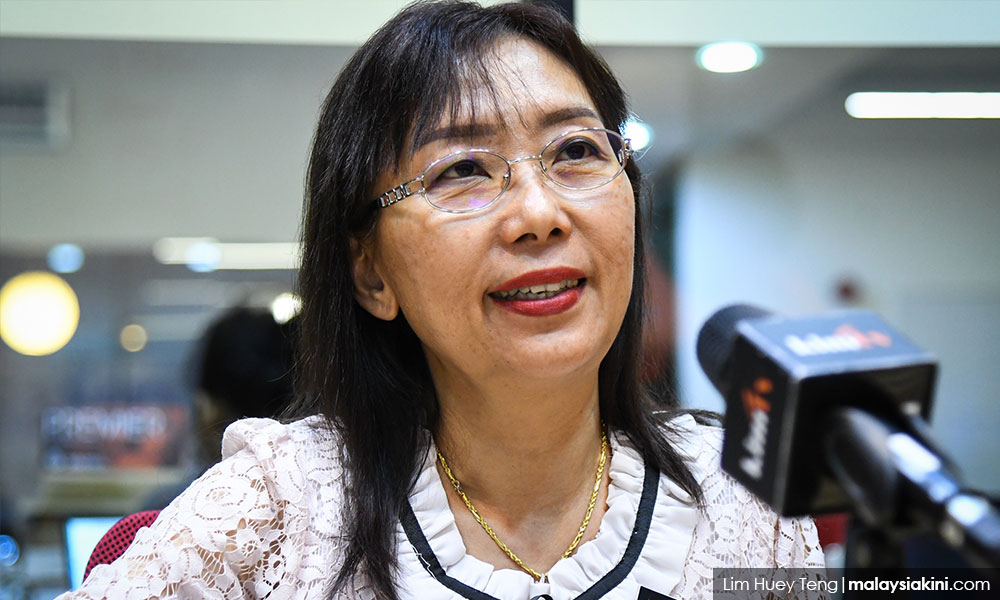
INTERVIEW | With criticism raining on the 11-month-old Pakatan Harapan government for failing to fulfil its manifesto promises plus flip-flops over several policies and compounded with a string of by-election defeats, there is growing concern that it will not be in power beyond one term.
In an interview with Malaysiakini and KiniTV, Primary Industries Minister Teresa Kok acknowledged the growing dissatisfaction with Harapan but believes the ruling coalition can turn the tide after the people see a discernable difference in governance.
She pointed out that some of Harapan's supporters were unhappy because they expected changes to happen overnight.
"They failed to see that we are inheriting a company (government) with a huge debt and one full of problems, including structural problems," she said.
"When people blame (us) for the bad economy, we shouldn't forget that the world's economy is worsening due to US-China trade war with the surrounding countries also suffering," she explained.
The DAP deputy secretary-general also said some were unhappy due to efforts made to ensure study loans were repaid and the people pay their taxes.
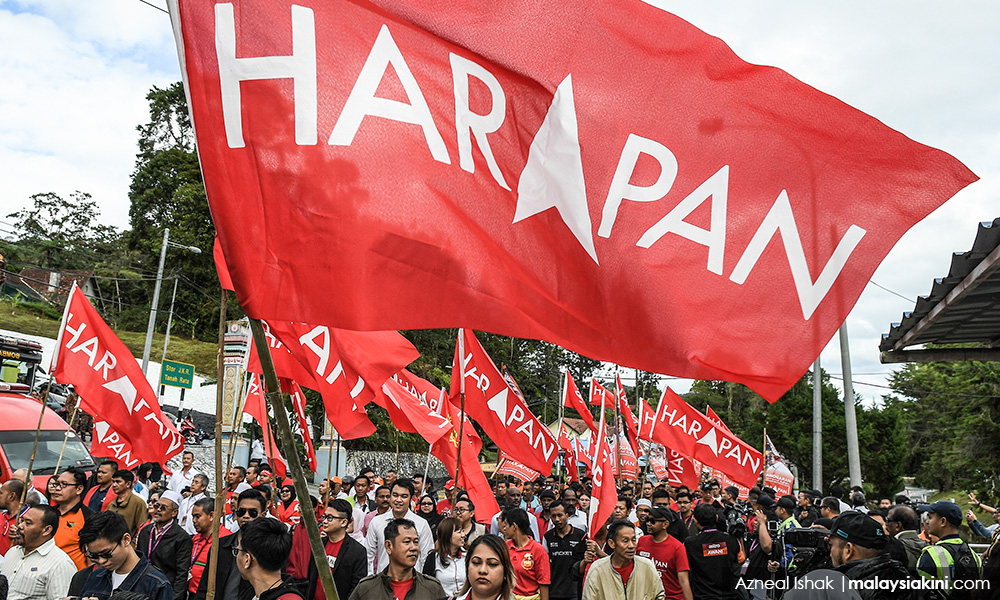
"I, however, do not believe that we are going to be one-term government," she stressed, citing the defunct Pakatan Rakyat's experience in taking over the state governments of Penang and Selangor in 2008 and holding on to them in subsequent general elections.
Back then, she said, these state governments encountered a similar sentiment prompting some to opine that the coalition would not last.
"In Selangor, we faced lots of problem and demonstrations were held on a monthly basis. And yet, we could survive for three terms," said Kok, who had served in the state cabinet.
In order to be in power beyond one term, Kok said, Harapan needed to listen to feedback from the people while expediting its reform agenda.
"We understand that times now are bad for both business folk and ordinary people and we are trying our best to improve that.
"We are not a perfect government, we have our own weaknesses. Some of the leaders might have acted unwisely in the past, we were no saints," the Seputeh MP admitted.
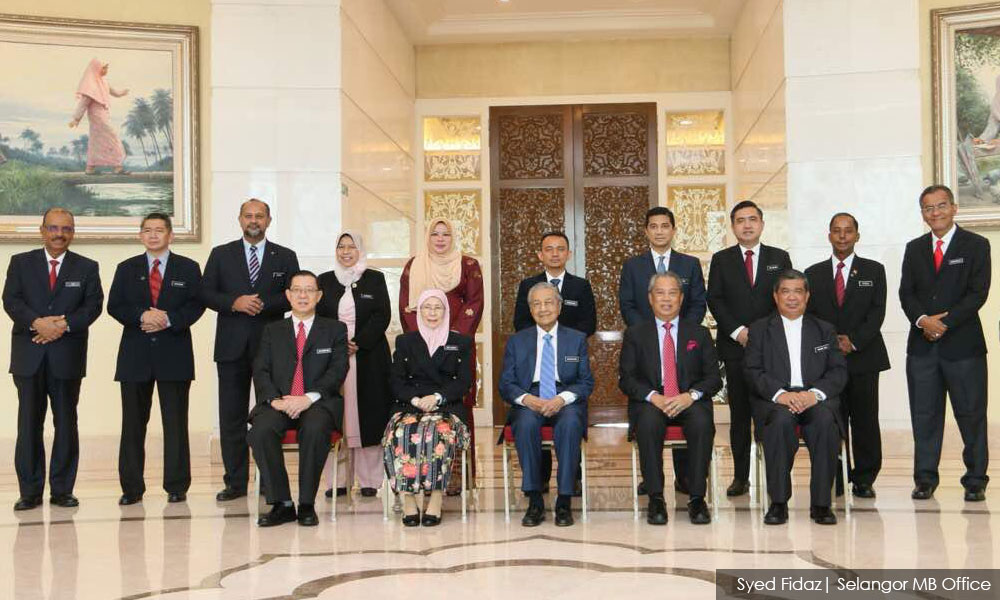
"But I am confident that when we bring improvements to the economy, bring changes to the institutions and show we are serious in combatting corruption, Malaysians, including the Malay community, will support us.
"I feel that people will see in five years (2023) that we are a more ideal government compared with BN," she said.
Beside ensuring DAP can keep its incumbent seats which are mainly in urban and semi-urban areas, the party also has to make sure its allies can defend their respective seats too, she added.
Harapan, which won 121 parliamentary seats and captured eight states in the 14th general election together with Sabah's Warisan, is said to be suffering from a trust deficit ahead of its one-year anniversary in federal power on May 9.
The ruling coalition now has 139 MPs after accepting some lawmakers who defected from the opposition parties, including Umno.
A survey conducted by the Ilham Centre and Penang Institute three months ago showed that 60 percent of the Malay respondents were not happy with Harapan's performance since assuming government.
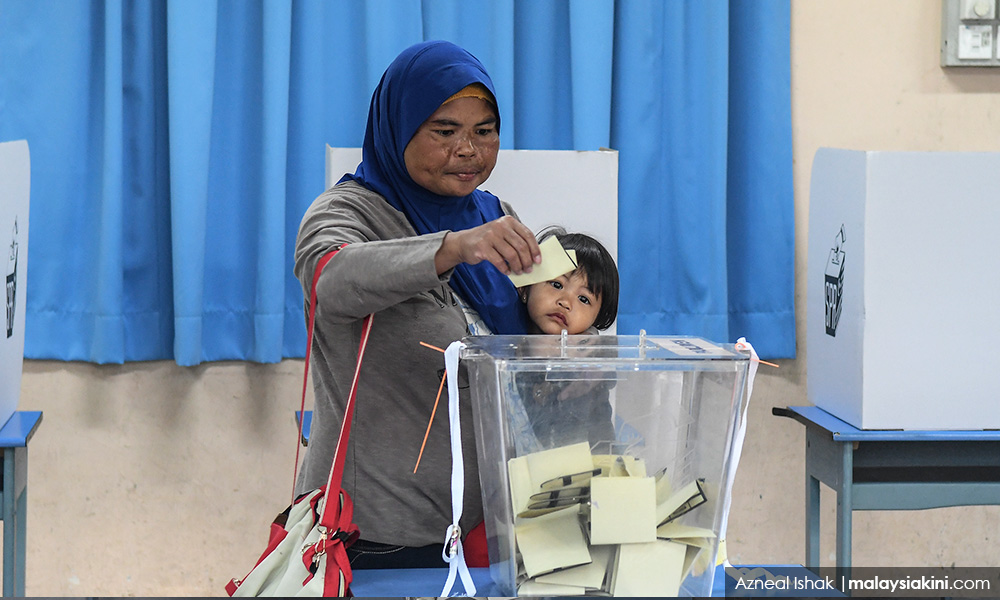
Subsequently, the coalition lost three consecutive by-elections held for the Cameron Highlands and Semenyih parliamentary seats and the Rantau state seat.
Externally, the ruling coalition faces a growing threat from the Umno-PAS pact which forced the government to abandon its plans to ratify two international treaties - the International Convention on the Elimination of All Forms of Racial Discrimination (Icerd) and the Rome Statute of the International Criminal Court (ICC).
Kok revealed that the cabinet was united in its decision not to proceed with the ratification of both treaties.
"Let's face the reality. Sixty percent of the voters in Malaysia are bumiputera. At this stage, we are busy with reforming the country, wiping out the corruption but the opposition is ganging up to attack us.
“So we need to be wise in our approach," she said. "Sometimes, it is better to take a step back for the sake of the bigger picture and when the people are not ready, rather than go ahead," she noted.
"Yes, you can blame us for U-turning (on the treaties). But I hope our supporters can understand that we are facing a complex situation where race, religion and the royalty have been dragged into the political discourse by the opposition," she said.
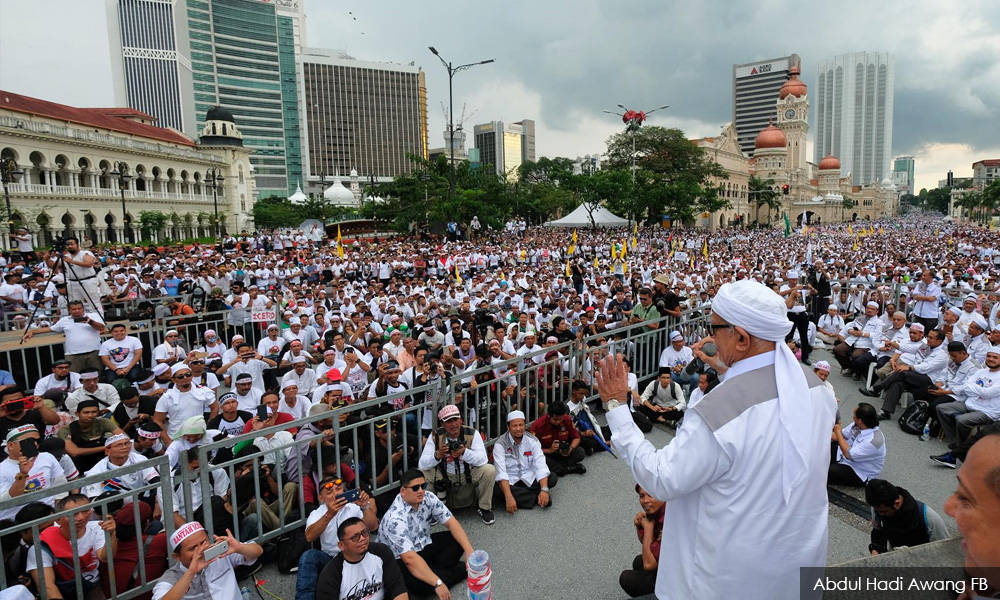
In September last year, Prime Minister Dr Mahathir Mohamad told the UN General Assembly that Malaysia would ratify six core international treaties, including Icerd.
The spotlight fell on Icerd after Rembau MP Khairy Jamaluddin questioned in the Dewan Rakyat whether the treaty would affect Article 153 of the Federal Constitution involving Malay special rights.
Umno and PAS then repeatedly voiced objections which culminated in a massive rally (above), prompting the government to back track on signing the treaty.
Following this, on April 5, Mahathir announced that Malaysia would also be withdrawing from the Rome Statute, a month after acceding to the treaty.
The prime minister blamed the decision on those who had sown confusion over the issue and attempted to pit the royals against his administration.-Mkini



No comments:
Post a Comment
Note: Only a member of this blog may post a comment.